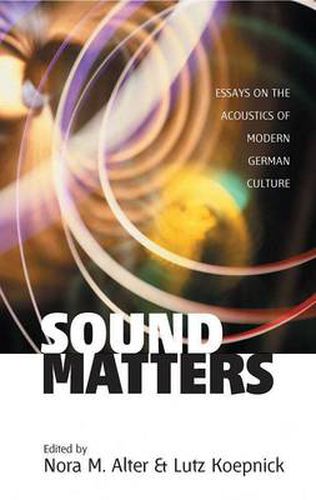Readings Newsletter
Become a Readings Member to make your shopping experience even easier.
Sign in or sign up for free!
You’re not far away from qualifying for FREE standard shipping within Australia
You’ve qualified for FREE standard shipping within Australia
The cart is loading…






This title is printed to order. This book may have been self-published. If so, we cannot guarantee the quality of the content. In the main most books will have gone through the editing process however some may not. We therefore suggest that you be aware of this before ordering this book. If in doubt check either the author or publisher’s details as we are unable to accept any returns unless they are faulty. Please contact us if you have any questions.
The sounds of music and the German language have played a significant role in the developing symbolism of the German nation. In light of the historical division of Germany into many disparate political entities and regional groups, German artists and intellectuals of the 19th and early 20th centuries conceived of musical and linguistic dispositions as the nation’s most palpable common ground. According to this view, the peculiar sounds of German music and of the German language provided a direct conduit to national identity, to the deepest recesses of the German soul. So strong is this legacy of sound is still prevalent in modern German culture that philosopher Peter Sloterdijk, in a recent essay, did not even hesitate to describe post-wall Germany as an acoustical body.
This volume gathers the work of scholars from the US, Germany, and the United Kingdom to explore the role of sound in modern and postmodern German cultural production. Working across established disciplines and methodological divides, the essays of Sound Matters investigate the ways in which texts, artists, and performers in all kinds of media have utilized sonic materials in order to enforce or complicate dominant notions of German cultural and national identity.
$9.00 standard shipping within Australia
FREE standard shipping within Australia for orders over $100.00
Express & International shipping calculated at checkout
Stock availability can be subject to change without notice. We recommend calling the shop or contacting our online team to check availability of low stock items. Please see our Shopping Online page for more details.
This title is printed to order. This book may have been self-published. If so, we cannot guarantee the quality of the content. In the main most books will have gone through the editing process however some may not. We therefore suggest that you be aware of this before ordering this book. If in doubt check either the author or publisher’s details as we are unable to accept any returns unless they are faulty. Please contact us if you have any questions.
The sounds of music and the German language have played a significant role in the developing symbolism of the German nation. In light of the historical division of Germany into many disparate political entities and regional groups, German artists and intellectuals of the 19th and early 20th centuries conceived of musical and linguistic dispositions as the nation’s most palpable common ground. According to this view, the peculiar sounds of German music and of the German language provided a direct conduit to national identity, to the deepest recesses of the German soul. So strong is this legacy of sound is still prevalent in modern German culture that philosopher Peter Sloterdijk, in a recent essay, did not even hesitate to describe post-wall Germany as an acoustical body.
This volume gathers the work of scholars from the US, Germany, and the United Kingdom to explore the role of sound in modern and postmodern German cultural production. Working across established disciplines and methodological divides, the essays of Sound Matters investigate the ways in which texts, artists, and performers in all kinds of media have utilized sonic materials in order to enforce or complicate dominant notions of German cultural and national identity.